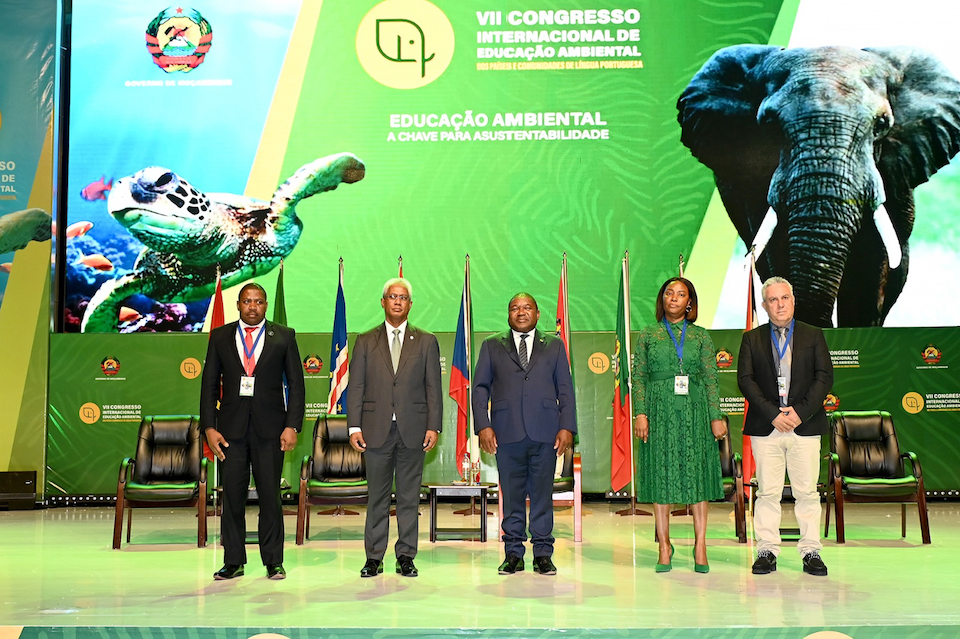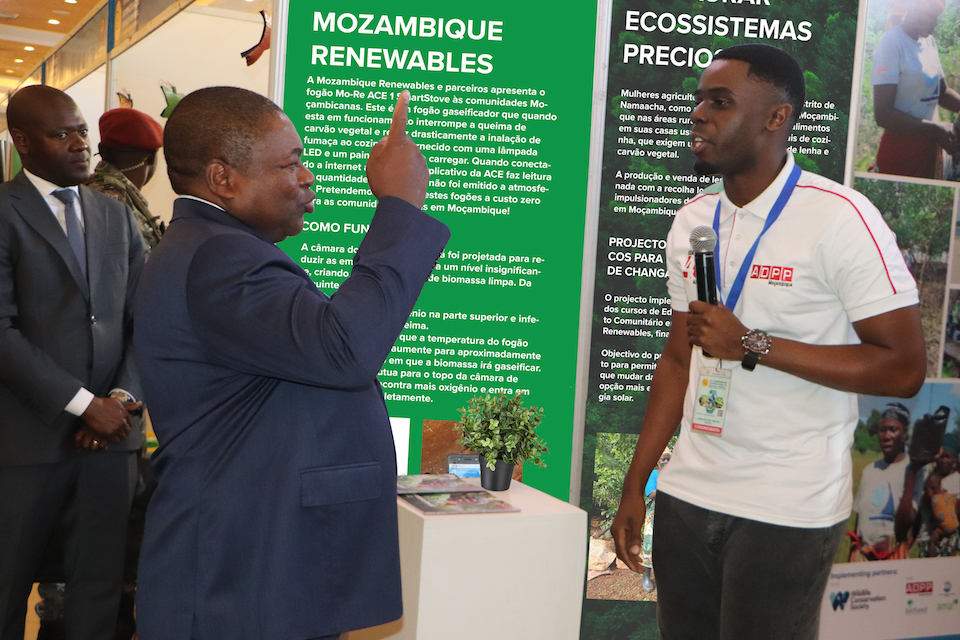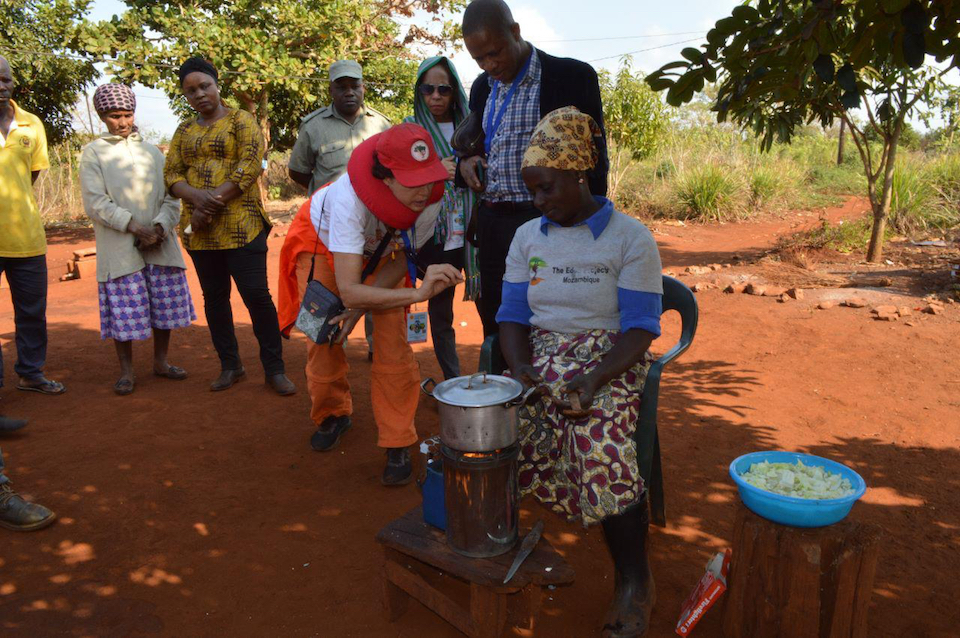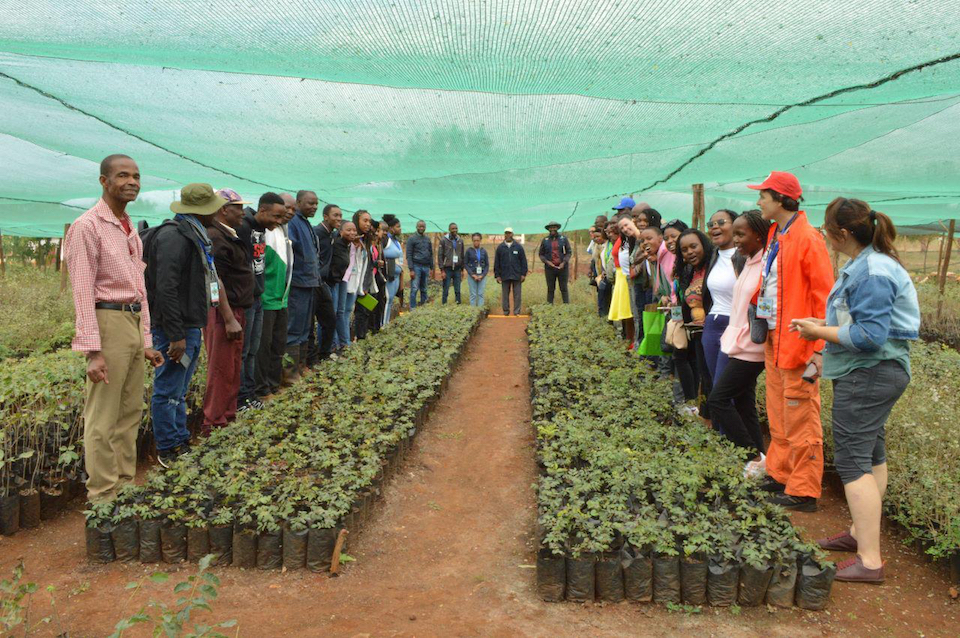ADPP is participating in the VII International Congress on Environmental Education of the Portuguese Speaking Countries and Communities (CPLP) and Galicia, which takes place in the city of Maputo, at the Joaquim Chissano International Conference Centre, from 4 to 7 July under the theme: "Environmental Education, the key to sustainability".

The opening session included the interventions of the President of the Republic, Filipe Nhusi, the Minister of Land and Environment, Ivete Maibaze, the Executive Secretary of CPLP, Zacarias da Costa, the Secretary of State of the city of Maputo, Vicente Joaquim, and the President of the Portuguese Association for Environmental Education (ASPEA), Joaquim Ramos Pinto.
In his speech, the President of the Republic recalled that the impact of climate changes, resulting from global warming, due to the emission of carbon gases, is the main factor of the cyclical occurrence of natural disasters that affect more the countries that pollute less, such as the CPLP and Galicia. At the same time, the head of state criticized the most industrialized countries for the non-compliance with environmental agreements.
"The non-compliance with agreements reached on climate change, mainly by industrialized countries, compromises sustainable development and generates concern, measured by the growing negative impacts of extreme events" - he warned.
For this and other reasons, Filipe Nhusi, drew attention to the fact that environmental education should not be seen as an issue directed to poor countries, but should involve, above all, the most polluting countries in order to comply with the Cop21, held in Paris in 2015.
For his part, the Executive Secretary of CPLP recognized the importance that Mozambique attaches to the challenge of preserving and restoring the planet, measured by the efforts that organizations have undertaken to maintain a more informed and participatory civil society in protecting the environment.

ADPP, as part of the solution to the challenges imposed by the climate crisis, shared his experience in the field of environmental education through the actions they have undertaken with the communities that benefit from their integrated projects in the area of environment.
For example, in the district of Namaacha, the project called "Changalane Ecological Stoves for Women" implemented in collaboration with Mozambique Renewables and with funding from ExxonMobil Limited, has trained a club of farmers consisting of 130 women to use ecological cookers to replace vegetable cookers in order to reduce smoke and CO2 emissions.

Also, as part of ADPP's contribution in the field of environmental education, the Higher Institute of Education and Technology offers degree courses in Education for the Environment as a way of providing young Mozambicans with important tools in their interaction with the community to advocate for the protection and sustainable use of nature's resources.
In Nampula province, the project called "Blue Future" led by WCS and co-financed by the Blue Action Fund, Oceans 5 and MACP, works with communities in Mossuril and Memba districts to raise environmental awareness about the importance of mangroves for the ecosystem.

It should be noted that the Organizing Committee of the congress has chosen the clean cookstoves project and ISET-One World as preferred locations where delegates can visit and interact with students of the Environmental Education course and the community of Changalane to measure the level of environmental sustainability that the use brings in the lives of these communities.

